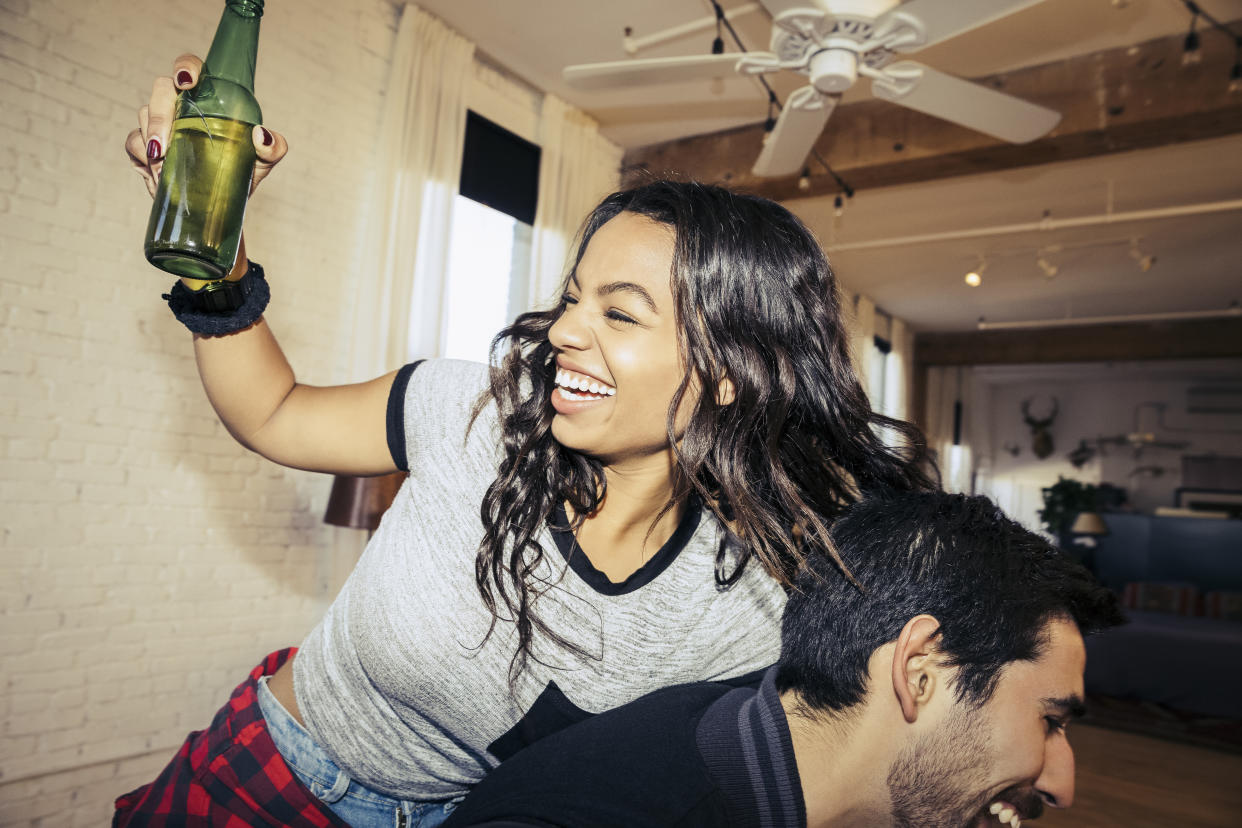This is why Brits have 546 different words for ‘drunk’

Brits have always had a way with words. There’s no limit to the creativity: from the inspiring literary works of Shakespeare, Jane Austen, Charlotte Bronte and George Orwell, to coming up with hundreds of different words to say someone is “drunk”.
Yes, that’s right; Britons have designated 546 words that can be used to describe being in a state of drunkenness - dubbed ‘drunkonyms’.
According to a study carried out by German researchers, the UK’s long-standing drinking culture and dry sense of humour has contributed to such a long list of words.
The report, published in the Yearbook of German Cognitive Linguistics Association, found that Brits have been building up a “wealth of terms for states of drunkenness” for “a long time”.
“We have shown that there are (at least until recently) productive patterns of creating new words meaning ‘drunk’, or rather ‘pissed’,” the authors said.
“We can say that the wide range of words observed in the already existing lists of drunkonyms seems to support the view that there is a large amount of words that one could potentially use to creatively express drunkenness in English.”

Comedian Michael McIntyre previously observed that Brits could use just about any word to confer drunkenness by simply adding “-ed” to the end, and saying, “I got completely…” at the start of a sentence.
Linguists Professor Christina Sanchez-Stockhammer of Chemnitz University of Technology and Peter Uhrig of Friedrich-Alexander-Universitat Erlangen-Nurnberg, decided to test the theory that any word could be used, and found it to be somewhat accurate.
The extensive list of examples included words like “trolleyed”, “gazeboed”, “cabbaged”, and “bladdered”.
Prof Sanchez-Stockhammer told The Times that the ability to use completely unrelated words in this way is unique to the British.
“This humorous modifying of words is only possible because of the way sentences are constructed in English and because the British really enjoy witty wordplay. For example, it would not work in German,” she said.
“‘Gazeboed’ and ‘carparked’ are funny because there is no direct relation between the base word and the meaning ‘drunk’.”
Joe McGowan, a linguist expert and CEO of McGowan Transcriptions, who was not involved in the study, said the findings were both “fascinating and hilarious”.
“As a nation known for its pub culture and penchant for revelry, the English language has evolved to accommodate the various nuances and degrees of intoxication,” he said.
“From the casual 'tipsy' to the downright obscure 'steam-pigged,' each word carries its connotations and imagery, allowing for precise communication about one's state of drunkenness.”
As to why Brits have been able to be so creative with drunkonyms, McGowan explains: “Humans have a natural inclination to play with words, whether for comedic effect, social bonding, or sheer linguistic experimentation.
“The phenomenon of creating new words and expressions, especially in informal contexts like slang or colloquial speech, is a testament to our innate creativity and adaptability.”
Top 10 words for ‘drunk’
Bladdered
Langered
Legless
Mashed
Merry
Mullered
Pickled
Pie-eyed
Plastered
Sloshed
Watch: Why Alcohol Can Disrupt Healthy Sleep
Alcohol: Read more
How alcohol impacts your gut health as a third of Brits plan for a sober Christmas (Yahoo Life UK, 4-min read)
How drinking alcohol affects your body and mind (Yahoo Life UK, 6-min read)
UK women named world’s biggest female binge drinkers (Yahoo Life UK, 5-min read)


